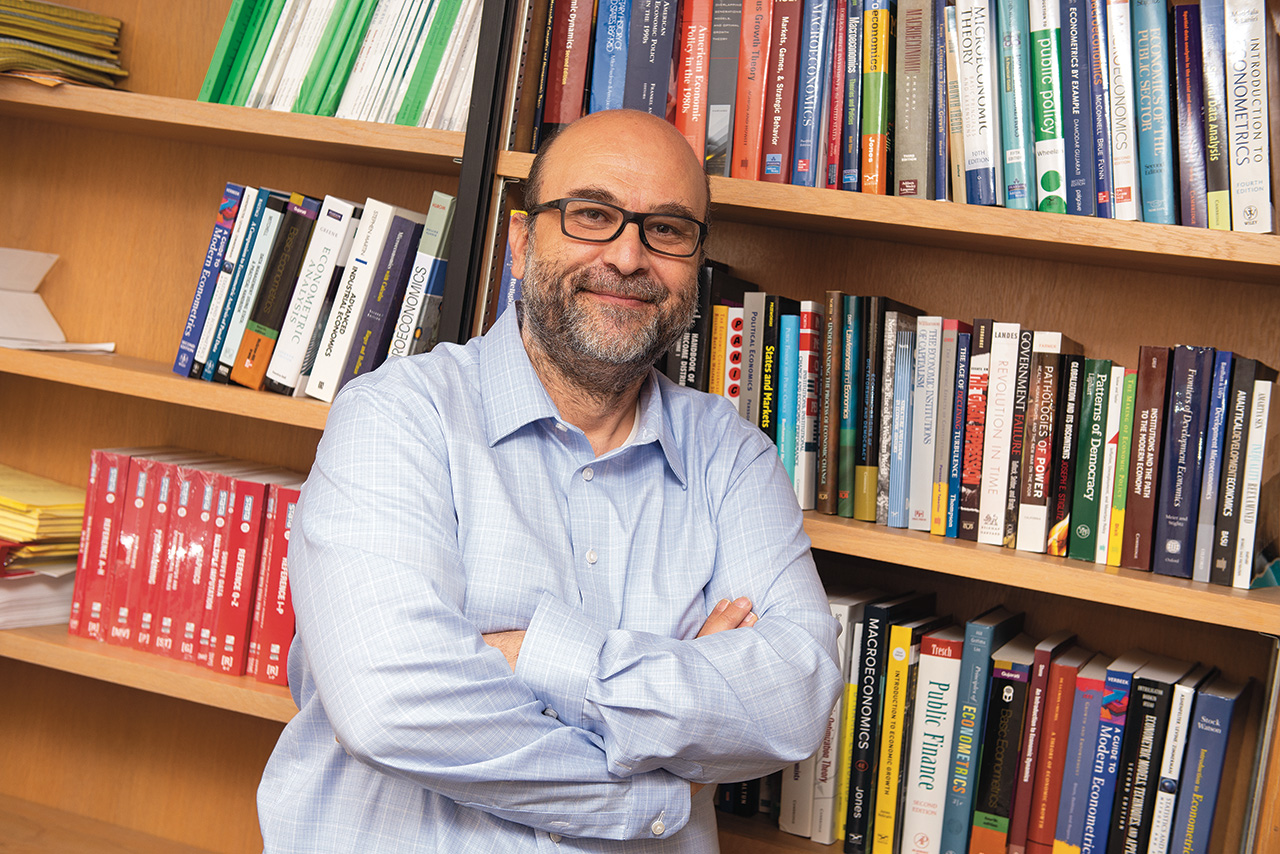There may be no more deserving home than Illinois for a research initiative dedicated to studying public corruption. However, that Associate Professor of Economics Oguzhan Dincer has opened the Institute for Corruption Studies in the heart of a state synonymous with political shadiness has more to do with circumstances than design.
Dincer started the institute in 2016 at Illinois State University. He had been conducting his scholarship as a fellow at a Harvard University research center, but left when its focus moved away from corruption studies. Now many of the same researchers who were working under the Harvard umbrella have found shelter at Dincer’s institute.
Appears InThe institute examines economic and political corruption on a national and global scale, by initiating, collecting, and distributing research, which can be found on the website greasethewheels.org. The institute also hosts an international cast of scholars at its annual workshop in Chicago and brings about 10 speakers to campus each year.
The institute is based out of Dincer’s office in Stevenson Hall where he works with 10 student researchers. They are supported solely by a grant from the Charles Koch Foundation, though Dincer is seeking additional funding.
The following Q&A with Dincer has been edited for brevity and clarity.
Why did you start the institute?
In 2011 I became a fellow at the Harvard Law School’s (Edmond J. Safra) Center for Ethics, where there was a corruption lab for a bunch of us—biologists, psychologists, lawyers, political scientists, whoever does research on corruption. Then there was a leadership change in the center, and they changed the focus from corruption to something else. And we felt kind of homeless, so I started looking for funding to continue the work that we started there and then I got some funding set up for the institute here.
What we do is we create different measures of corruption in the United States. So there’s Transparency International. They publish their corruption perceptions index every year ranking the countries, but we don’t have good measures of corruption for U.S. states or U.S. cities. That’s what we’re working on—creating these measures in the United States. We’re basically asking ourselves questions like, “Why is Illinois more corrupt than Minnesota?” It’s a big question. And if it is more corrupt than Minnesota, “Why is it more corrupt?”
Who do you hope uses the information that you’re producing?
We have our own corruption perceptions index. We survey political reporters and investigative reporters in each state every year. We’re doing the fifth one this year. Everybody was really quite interested. The Wall Street Journal covered it. Washington Post covered it. FiveThirtyEight covered it.
The interesting thing is if you talk with anybody in the country, they’ll all tell you that New Jersey is bad, Illinois is bad, New York is bad, Louisiana is bad, but nobody knows anything about Kentucky or Arizona or New Mexico. With our index, we can actually map the corruption in the U.S. and we see which states are more corrupt than the others. Kentucky turns out to be one of the more corrupt states, and nobody really talked about it before.
How do you define corruption?
The basic definition is using public office for private gain. But we also have in our study a “Type 2” corruption, which is legal corruption. It’s more about “money in politics.”
What do you hope to accomplish with the institute?
We need to create more research on corruption. Like in Illinois, we’re kind of used to it. But we don’t notice that it is actually crippling us. And we can solve this problem, but we first have to find out what the root causes are. Once we identify them, then it’s up to media to push for it; it’s up to politicians to change.
For more information about the Institute for Corruption Studies and to view its research, visit greasethewheels.org.

